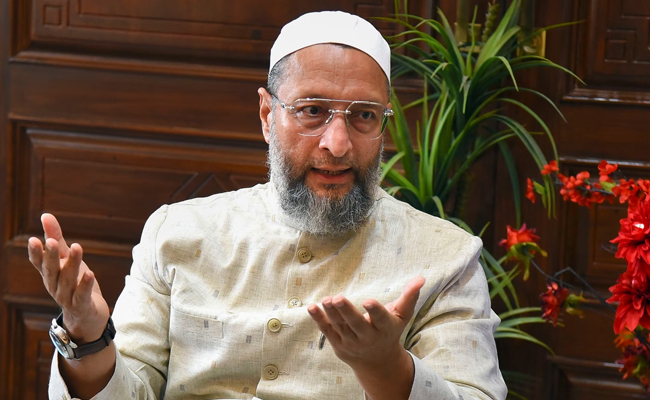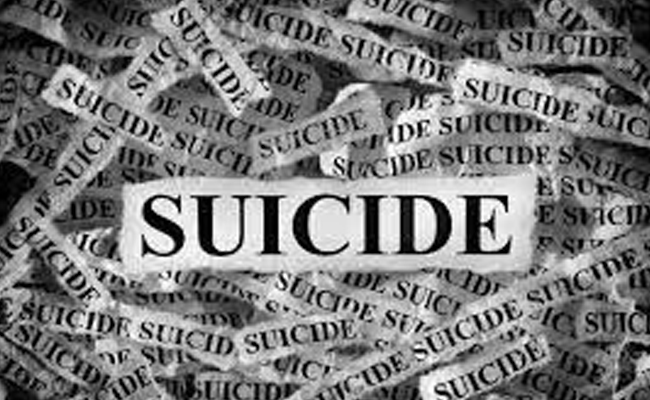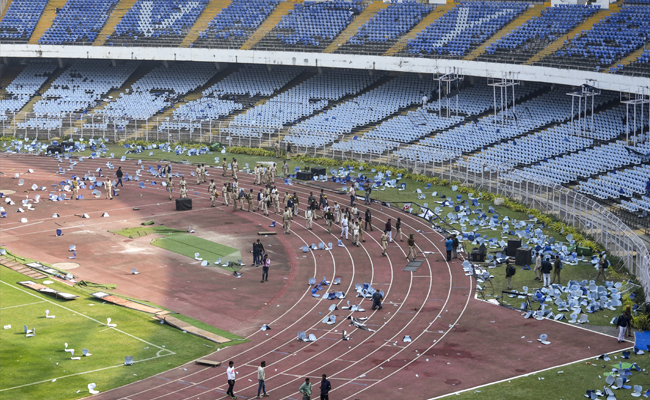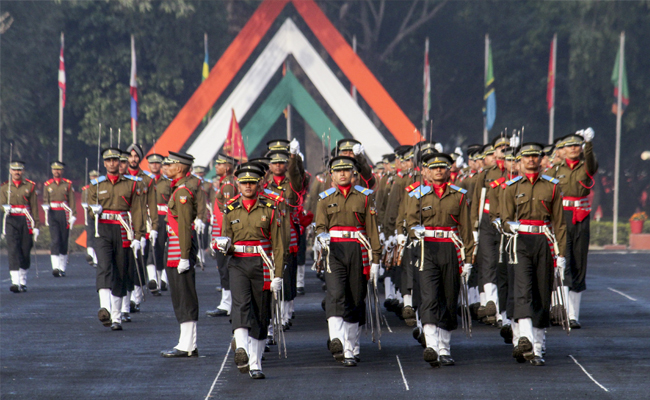Hyderabad MP Asaduddin Owaisi has sparked a debate with his remark, "Sab 'BeNaqab' ho raha hain" (Everyone’s mask is coming off), in response to the participation of former Supreme Court judge, Justice Hemant Gupta, in a "Judges Meet" event organised by the Vishwa Hindu Parishad (VHP). Owaisi shared the comment on X (formerly Twitter) after The News Minute reported on the gathering held on September 8, where Justice Gupta and at least 30 other retired judges from the Supreme Court and various High Courts were present.
The meeting, hosted by the legal wing of the VHP in New Delhi, reportedly focused on topics that resonate with Hindutva groups, such as the status of the Varanasi and Mathura temples, the Waqf (Amendment) Bill, and issues surrounding religious conversions.
Owaisi's critical remark came in the wake of Justice Gupta’s previous involvement in high-profile cases, including his decision to uphold the Karnataka High Court's verdict in the controversial Hijab ban case. In that case, Justice Gupta sided with the Karnataka High Court's ruling, stating that wearing the hijab was not an "essential religious practice" under Article 25 of the Constitution. His stance on the matter led to a split verdict in the Supreme Court, where Justice Sudhanshu Dhulia dissented. The case was referred to a larger bench, and the matter remains unresolved.
Responding to the criticism surrounding his attendance at the VHP event, Justice Gupta defended his participation, emphasizing his rights as a retired judge and citizen of India. He told The Quint, "I cannot comment about others but I have the liberty to associate with platforms and forums to discuss and deliberate upon current issues and topics as any other citizen of the country." He further added that he attended the event to engage in discussions on "current events and affairs."
Justice Gupta’s judicial career has included several high-profile and often controversial rulings. Before retiring, he upheld the Karnataka High Court’s decision on the Hijab ban case. His final judgment raised significant public debate, given the delicate balance between religious freedom and state regulations.
Apart from his involvement in the Hijab case, Justice Gupta was also part of a 2022 split verdict on the use of Eidgah Maidan in Bengaluru for Ganesh Chaturthi celebrations. The case was later referred to a larger bench. Additionally, in 2020, he delivered a notable ruling stating that caste-based slurs made in private, rather than in public view, do not constitute a punishable offense under the Scheduled Castes and Scheduled Tribes (Prevention of Atrocities) Act.
Justice Gupta also served on the constitutional bench that declared Maratha reservations unconstitutional in 2019 for exceeding the 50% cap on reservations, a decision that stirred significant debate across the country.
Two months after his retirement from the Supreme Court, Justice Gupta was appointed as the Chairperson of the New Delhi International Arbitration Centre (NDIAC) by the central government.
Let the Truth be known. If you read VB and like VB, please be a VB Supporter and Help us deliver the Truth to one and all.
New Delhi (PTI): Police here have busted a crime syndicate involved in traffic fraud and extortion, arresting three people including the alleged mastermind who sold fake stickers to help commercial vehicles bypass no-entry restrictions, an official said on Saturday.
The police said they dismantled a third organised syndicate linked to traffic-related frauds, with the arrest of Rinku Rana alias Bhushan, his associate Sonu Sharma and Mukesh Kumar alias Pakodi, who was also connected to another extortion syndicate.
According to the police, Rinku Rana was running a well-organised network that facilitated the movement of commercial goods vehicles during restricted hours by selling fake 'marka' or stickers for Rs 2,000 to Rs 5,000 per vehicle every month. The stickers were falsely projected as authorisation to evade traffic challans.
During raids, the police recovered Rs 31 lakh in cash, property documents worth several crores of rupees, over 500 fake stickers and six mobile phones allegedly used to operate the syndicate.
The crackdown followed a complaint filed by a traffic police officer in April this year after a commercial vehicle tried to evade checking by producing a fake sticker claiming exemption from enforcement action.
Investigation revealed that social media groups were being used to coordinate the illegal movement of vehicles and alert drivers about traffic police checkpoints, police said.
"A parallel system was being run to cheat drivers and vehicle owners while undermining traffic enforcement. On the basis of evidence, provisions related to organised crime under the BNS were invoked," a senior police officer said.
Sonu Sharma, the police said, managed social media groups through which stickers were sold and real-time alerts were circulated regarding traffic police movement. He also acted as a link between Rana and drivers operating in the field.
In a related development, Mukesh Kumar alias Pakodi, an associate of Rajkumar alias Raju Meena, who was earlier arrested under the Maharashtra Control of Organised Crime Act (MCOCA), was also apprehended.
Mukesh allegedly helped extort money from transporters and was involved in blackmailing traffic police personnel by recording enforcement actions, the police said.
Investigators alleged the syndicate led by Rajkumar deployed drivers to deliberately violate traffic rules and secretly record police officials during challans, later using manipulated videos to extort money under threat of false allegations.
The police said that in total, eight accused belonging to three different organised crime syndicates linked to traffic frauds and extortion have been arrested so far.
Further investigation is underway to trace the remaining members, conduct financial probes, and analyse digital evidence recovered during the raids, officials added.





